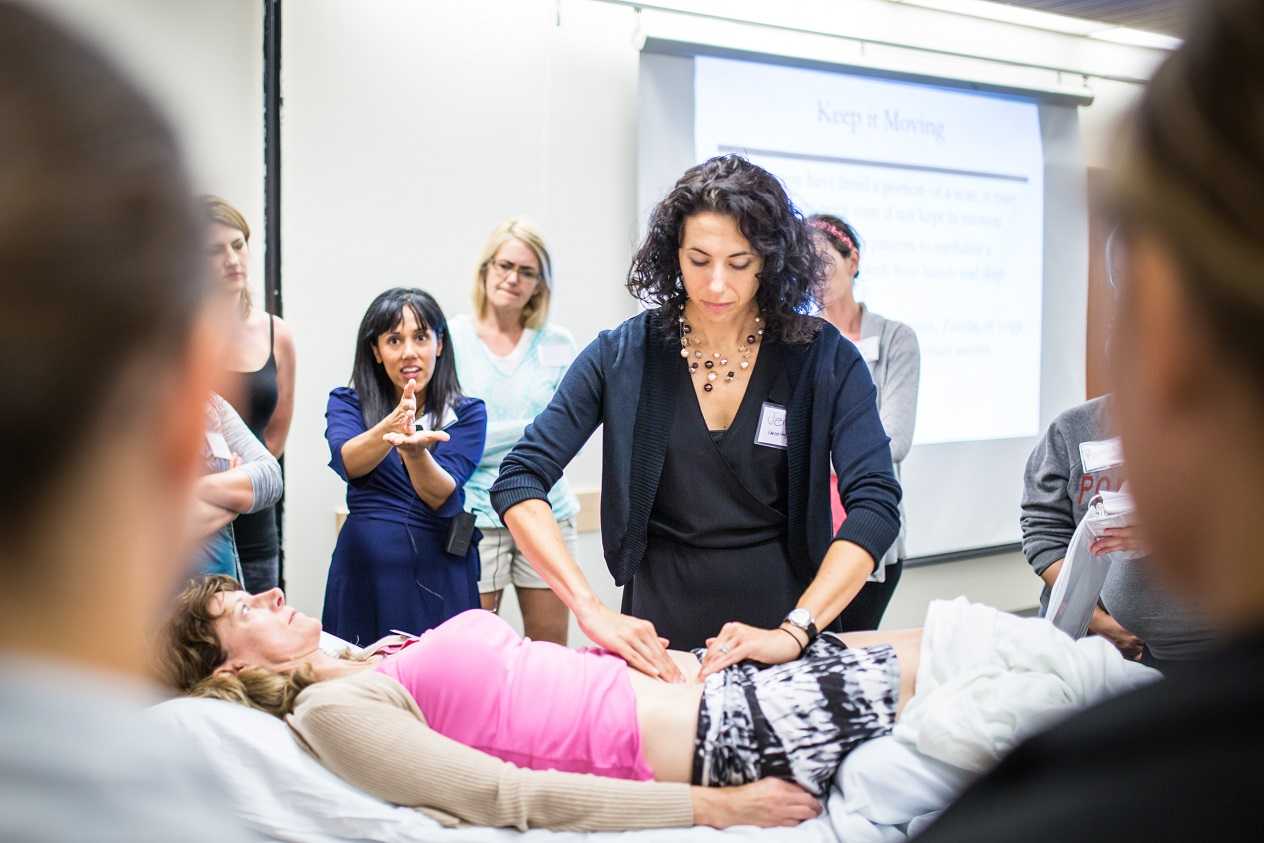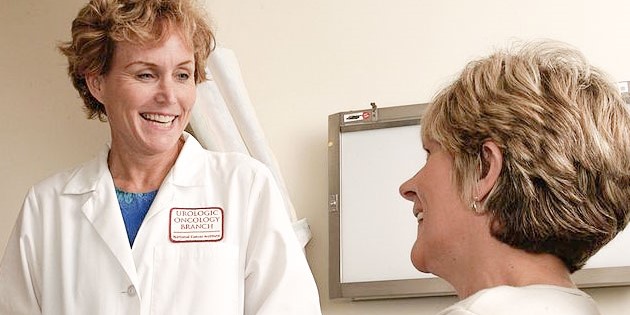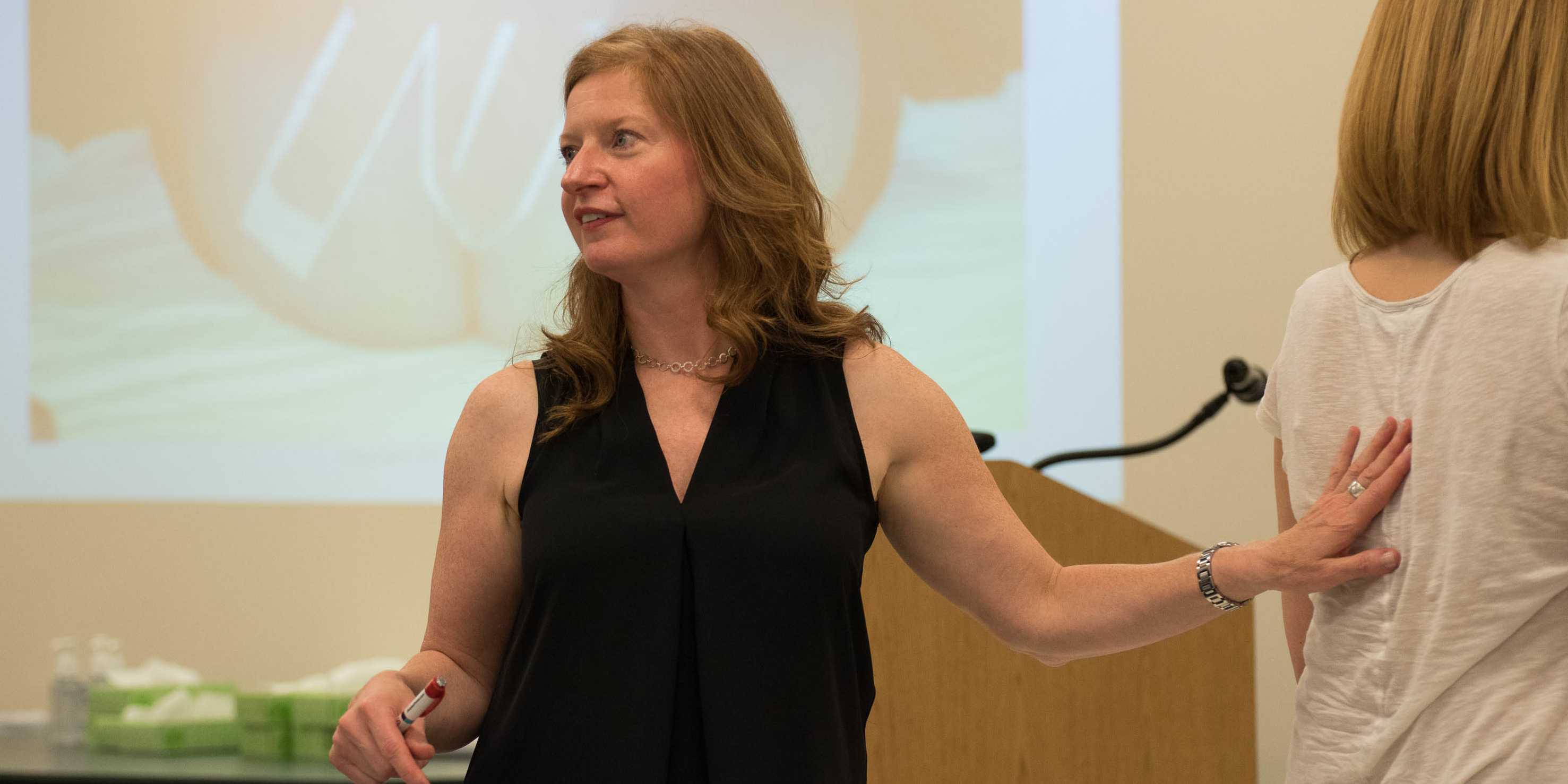Elizabeth Kemper - Featured Certified Pelvic Rehabilitation Practitioner
In our weekly feature section, Pelvic Rehab Report is proud to present this interview with newly certified practitioner Elizabeth Kemper MPT, PRPC, BCB-PMD

Describe your clinical practice:
I see both male and female patients in a private practice clinic and devote 100% of my time to pelvic therapy (“pelvic” being loosely defined as from the thorax to the knees). It is a privilege to share in some very personal and complicated portions of each person’s life. Just showing up for pelvic therapy can be daunting and I don’t take that trust lightly. The majority of people I see present with diagnoses of pelvic pain, prolapse, obstetrical issues, elimination dysfunction, abdominal pain and/or sexual dysfunction. I have the luxury and responsibility to give these patients undivided attention with one-on-one scheduling and treatments that are heavily weighted on patient education, manual techniques combined with neurologic re-education and progression into exercise-based support. I try to design the home programs to fit into the lifestyle and interests specific to that client. I love what I do and try to share that enthusiasm for pelvic health with each person who walks through the door!
If you could get a message out to physical therapists about pelvic rehabilitation what would it be?
I think the most important message to spread in the PT community is that pelvic rehabilitation is not a completely separate category. A good pelvic therapist integrates portions of all aspects of therapy – orthopedic, neurologic, geriatric, pediatric, oncologic, cardiovascular, etc! As is often found, the cause of the dysfunction with any diagnosis may be local or distant from the actual symptoms. While pelvic therapists specialize in the pelvic region, we have to incorporate the entire body in our evaluation and treatment in order to fully resolve the issue. There is sometimes a false image of pelvic therapists - that we just teach Kegels or do biofeedback - and that couldn’t be farther from the truth.
What has been your favorite Herman & Wallace Course and why?
Each of the Herman & Wallace courses I’ve taken have been excellent in their own ways. They are consistently innovative, evidence-based, clinically applicable, challenging, and always fun. For me the Differential Diagnosis course (with Peter Philip) was one of the most helpful in connecting the dots – tying together the orthopedic, visceral and neurologic parts of evaluation of chronic pelvic pain. Ramona Horton’s visceral course content has also proved to be vital in so many cases. You really can’t go wrong – there are so many aspects to pelvic rehab and I am looking forward to taking many more of the courses!
What advice would you give to physical therapists interested in earning PRPC?
The time I spent studying and preparing for this exam was the most important component to me. I’ve been out of school for many years which made the studying and test-taking process somewhat intimidating at first. What I found, though, is that delving back into the basics and reapplying them in the context of the more complex pelvic issues was so helpful. My advice – take your time to enjoy the process and really integrate the information into your daily practice. Yes, the letters of distinction are nice to have – but the path to get there is what made me a better, more thorough, more contemplative therapist.
Learn more about Elizabeth Kemper, MPT, PRPC, BCB-PMD at her Certified Pelvic Rehabilitation Practitioner bio page. You can also learn more about the Pelvic Rehabilitation Practitioner Certification at www.hermanwallace.com/certification.< p>
By accepting you will be accessing a service provided by a third-party external to https://hermanwallace.com/








































